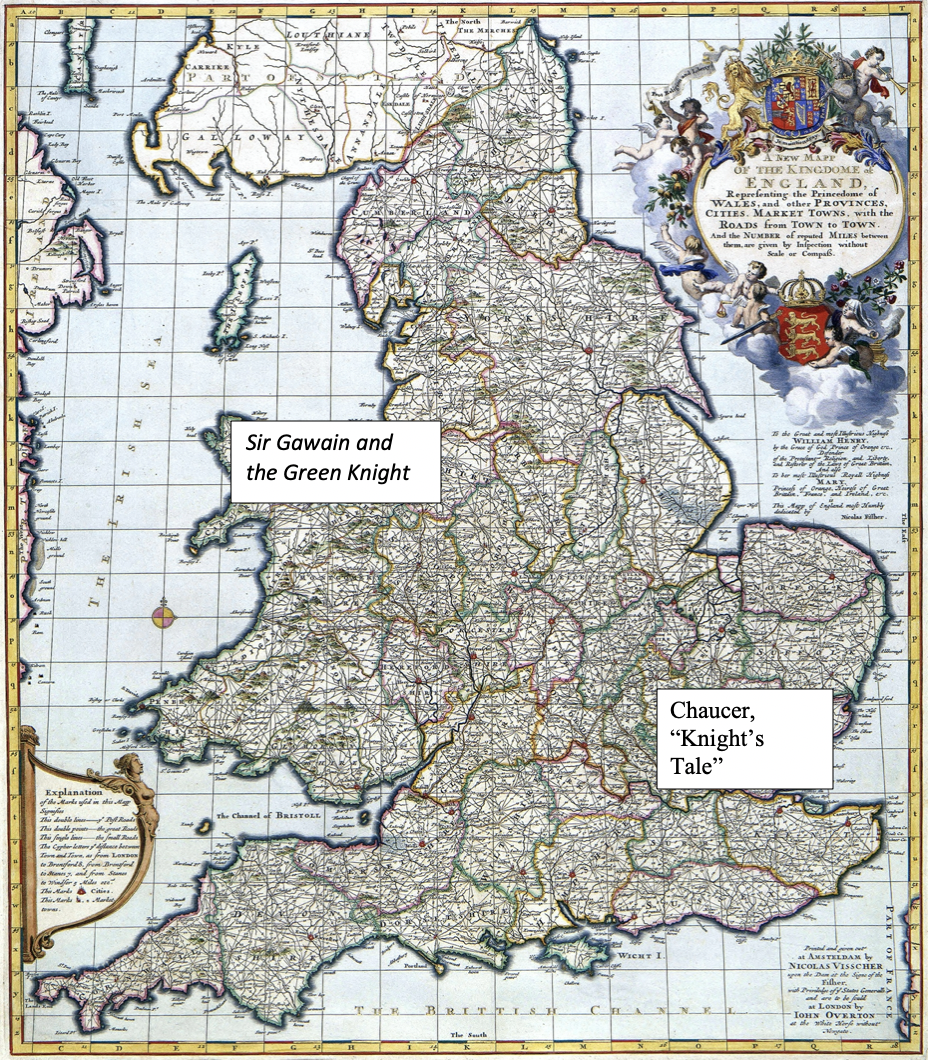Reading the Canterbury Tales
So, let’s now turn to Chaucer and his magnum opus, The Canterbury Tales.
First, I have a challenge that I hope will put you in the mood to think about The Canterbury Tales as a work of English literature. That an author who’s been dubbed the “Father” of English literature wrote in English might seem obvious. But actually it’s not as “well, duh” as you might think. Below are the first lines of two romances composed in the last quarter of the fourteenth century in different parts of England (see map below) , one Chaucer’s “Knight’s Tale” and the other an anonymous work, Sir Gawain and the Green Knight. Without consulting any sources, I’d like you, in the space between the lines, to translate these lines as literally as you can, and then, on the right, write quick paraphrase of what you think is going on in them:
Whilom, as olde stories tellen us,
Ther was a duc that highte Theseus;
Of Atthenes he was lord and governour,
And in his tyme swich a conquerour,
That gretter was ther noon under the sonne.
Sithen the sege and the assaut watz sesed at Troye,
The borgh brittened and brent to brondez and askez,
The tulk that the trammes of tresoun ther wroght
Watz tried for his tricherie, the trewest on erthe:

You may have found Sir Gawain and the Green Knight much harder to decode. The reason for this lies in the dialectical difference between that poet’s language and Chaucer’s. The map above shows the distance between the two poets: Chaucer inhabited southeast England, meanwhile the Gawain-poet lived on the border of present-day Wales.
Now, watch the video lecture below for some background on Chaucer and an explanation of what was at stake in writing in English during the late fourteenth century. For more about the Chaucer you don’t get in the textbooks, read this interview with Oxford University Professor Marion Turner, Chaucer’s most recent biographer: “When people think about Chaucer they think about a middle-aged man in a Southwark pub or writing The Canterbury Tales, the father of English literature, this patriarchal figure who’s at the head of the canon,” said Turner. “But the first time we see him in the documentary records he steps off the page as this teenage fashion plate being presented to the world by a woman.”
Mastery Check:
- What was Chaucer’s experience of the world beyond England?
- Why was writing in English a risky proposition in Chaucer’s day? What language(s) did Chaucer write in?